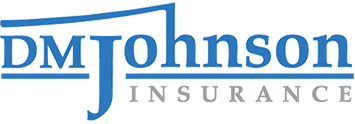Consider contacting David Johnson at the D.M. Johnson Insurance Agency for expert advice. David and his team of licensed insurance agents have over one hundred years of combined experience in the insurance business. They have helped clients protect the assets they have worked hard for in Newington, Wethersfield, Rocky Hill, Cromwell, Middletown, Berlin, West Hartford, Farmington, Avon and other towns all over the state. You can visit them in Newington at 2434 Berlin Turnpike, Newington or by calling 860-436-5339.
D. M. Johnson Insurance is your knowledgeable local agent who has experience with auto, home, motorcycle, umbrella, life disability and business insurance. Whether you’ve recently purchased a new vehicle or home, or you’re thinking of making the move to a new insurance provider, our experienced, friendly, and professional customer service representatives can help.
Contact D. M. Johnson Insurance today to learn more about the optimal insurance coverage options for your vehicles, home and business. Plus, find out what discounts you might be eligible for.
About Middletown
Middletown is a city in Middlesex County, Connecticut, United States. Located along the Connecticut River, in the central part of the state, it is 16 miles (26 kilometers) south of Hartford. Middletown is the largest city in the Lower Connecticut River Valley Planning Region. In 1650, it was incorporated by English settlers as a town under its original Native American name, Mattabeseck, after the local Wangunk village of the same name. They were among many tribes along the Atlantic coast who spoke Algonquian languages. The colonists renamed the settlement in 1653.
When Hartford County was organized on May 10, 1666, Middletown was included within its boundaries. In 1784, the central settlement was incorporated as a city distinct from the town. Both were included within newly formed Middlesex County in May 1785. In 1923, the City of Middletown was consolidated with the Town, making the city limits extensive.
Originally developed as a sailing port and then an industrial center on the Connecticut River, it is now largely residential. Its downtown, based on Main Street, serves as a popular retail, dining, and bar district near Wesleyan University. Middletown was the county seat of Middlesex County from its creation in 1785 until the elimination of county government in 1960. As of the 2020 census, the city had a total population of 47,717. Middletown, Connecticut is considered the southernmost city in the Hartford-Springfield Knowledge Corridor Metropolitan Region, which features a combined metro population of 1.9 million. Middletown is largely a politically progressive city, and is home to one of the largest pride events in all of Connecticut.
Shopping for Car Insurance
Shopping for car insurance is like shopping for any major item. It’s a good idea to shop around to find the policy that best meets your needs and budget.
The first and foremost item to consider is that you are responsible for the accidents you cause. Therefore, you want to make sure that you have enough coverage to protect you, your passengers, and the assets you’ve worked hard to attain. In Connecticut and other surrounding states, you are responsible (liable) for the accidents you cause, which is why car insurance is mandatory in most states. The mandatory portion of an auto policy is called liability insurance. The liability portion of your policy pays to repair the other driver’s car and their medical expenses if you’re at fault in an accident. Connecticut requires you to carry a minimum of $25,000 in Bodily Injury liability coverage for each injured person, up to a total of $50,000 per accident, and $25,000 for property damage per accident.
This minimum coverage may seem attractive because of their lower price, but they may not be enough to cover all the costs if you’re at fault in an accident. In the event you are at fault in an accident and do not have enough coverage, the other driver could sue you to collect the difference. Given the high costs of medical care and vehicle repairs due to inflationary prices, you will want to consider buying more coverage than just the required minimum limits.
Liability insurance doesn’t pay to repair or replace your car or to treat your injuries. Other types of coverage to consider include:
Collision – pays for damage to your car that you are responsible for.
Comprehensive – pays for damage from fire, hail, vandalism, or theft.
Uninsured or Underinsured Motorist – pays for damages that you are legally entitled to recover for medical treatment if the driver who caused the accident didn’t have enough insurance or didn’t stop (hit-and-run). In Connecticut, this coverage is mandatory, but may be waived after the sale and is usually sold at limits matching your liability coverage. Medical payments – pays medical bills/expenses for you or your passengers resulting from an accident, regardless of fault. Deductible – A deductible is the amount you must pay before the insurance company will pay. For example, if you have a claim for $1,200 and a deductible of $500, the insurance company will deduct $500 and pay you $700. The higher your deductibles, the lower your premium
As you can see, there are lots of components to auto insurance, so you want expert advice. You can find that searching by for an insurance agent near you that can help you choose what’s best for you.

